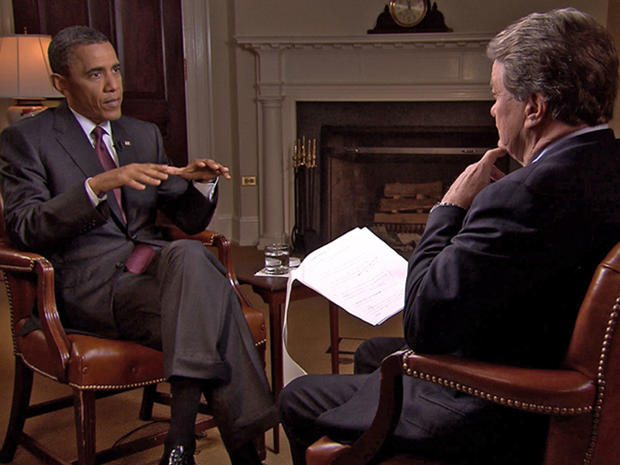Lawsuit seeks release of post-mortem Osama bin Laden images
Judicial Watch, a conservative organization that promotes governmental transparency, filed a lawsuit on Thursday against the Department of Defense after the government agency said it would not comply with the group's Freedom of Information Act (FOIA) request for the release of post-mortem images of Osama bin Laden.
President Obama announced last week that he would not release the photos of bin Laden, citing the importance of making sure that "very graphic photos of somebody who was shot in the head are not floating around as an incitement to additional violence or as a propaganda tool."
In the wake of that decision, a number of groups - including CBS News, the Associated Press, NPR, Politico and Citizens United, as well as Judicial Watch - filed FOIA requests for the images.
According to Judicial Watch, the DOD tacitly rejected the group's request in a letter dated May 9, citing an inability to "make a release determination" within the time constraints dictated by FOIA.
"In other words, the Defense Department has no plans to comply with basic requirements of the Freedom of Information Act and as a result, Judicial Watch filed a lawsuit this morning," Tom Fitton, president of Judicial Watch, said in a statement announcing the lawsuit.
"Judicial Watch believes the release of these documents are in the public interest," Fitton continued. "We believe that the president's statements suggesting that these documents not be released because he doesn't want America to be seen as 'spiking the football' or gloating are not lawful reasons for withholding government information of this nature. This is basic information about one of the most important military operations in a generation and we don't believe the administration has a lawful reason for withholding [it]."
In the official complaint against the DOD, the group argued that it was being "irreparably harmed" by the "unlawful withholding of requested records," arguing that such irreparable harm would continue unless the DOD was "compelled to conform its conduct to the requirements of law."
In the days following the May 1 raid that resulted in bin Laden's death, it appeared likely that the administration would release post-mortem pictures of the al Qaeda leader.
Two days after the raid, CIA director Leon Panetta told CBS News he thought a photo would be released, although he said the White House would make the final decision.
But Defense Sec. Robert Gates said Thursday that both he and Sec. State Hillary Clinton had advised the Obama administration against that course of action, in part because he feared the photos would be altered in a manner that might provoke skepticism or backlash.
A select group of lawmakers was allowed access to the images on Thursday, and the general consensus among those who viewed them was that they proved definitively that bin Laden was dead. But some lawmakers still said the images should eventually released.
"I've said already that I agree with President Obama's decision not to release these pictures right now. Satisfying skeptics and conspiracy theorists isn't worth inflaming radicals or putting our troops in even more danger," said Sen. Bill Nelson (D-Fla.), in a statement on Thursday. "Still, I personally believe the free flow of information is tantamount to our democracy. Thus, these pictures should eventually be made part of the public record. This is why I've written President Obama and asked that they be released as early as it can be determined that doing so won't expose Americans to harm."
And both skeptics who to see the visual evidence themselves and advocates for greater access to information say the images should be made available to the public, not just members of Congress.

